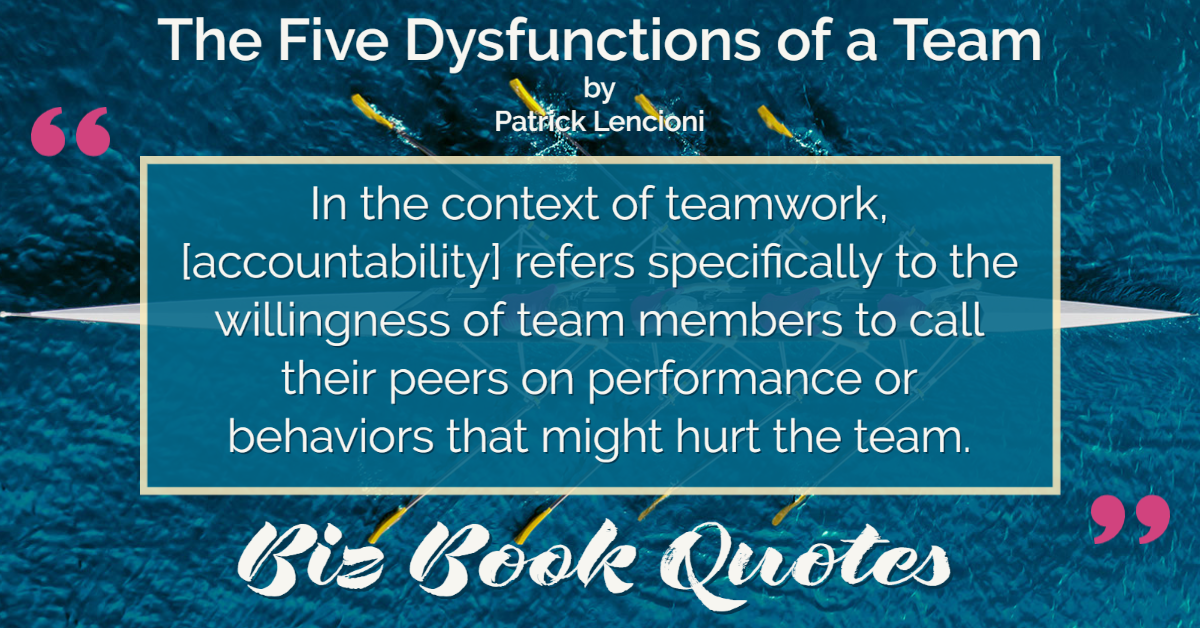 |
Great teams also pride themselves on being able to unite behind decisions and commit to clear courses of action even when there is little assurance about whether the decision is correct.
|
208 |
 |
More than any other member of the team, the leader must be comfortable with the prospect of making a decision that ultimately turns out to be wrong.
|
212 |
 |
Members of great teams improve their relationships by holding one another accountable, thus demonstrating that they respect each other and have high expectations for one another’s performance.
|
213 |
 |
As politically incorrect as it sounds, the most effective and efficient means of maintaining high standards of performance on a team is peer pressure.
|
213 |
 |
The enemy of accountability is ambiguity, and even when a team has initially committed to a plan or a set of behavioral standards, it is important to keep those agreements in the open so that no one can easily ignore them.
|
214 |
 |
By shifting rewards away from individual performance to team achievement, the team can create a culture of accountability.
|
215 |
 |
Team leaders must be selfless and objective, and reserve rewards and recognition for those who make real contributions to the achievement of group goals.
|
220 |
 |
Ironically, teams succeed because they are exceedingly human.
|
220 |
 |
By acknowledging the imperfections of their humanity, members of functional teams overcome the natural tendencies that make trust, conflict, commitment, accountability, and a focus on results so elusive.
|
220 |
 |
When trust runs deep in a team, people might not feel the need to question their colleagues or double-check their own work.
|
208 |